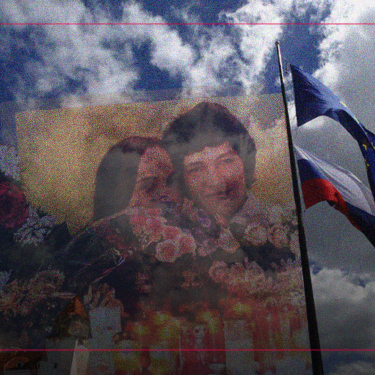Slovak parties asked to give election campaign pledge to implement EU recommendations

Ahead of Slovakia’s parliamentary elections on 30 September, Reporters Without Borders (RSF) urges all political parties that support the country’s European Union membership to commit to implementing all European Commission recommendations on protecting journalists and combatting gag lawsuits.
These elections, which will result in a new government, could open a new political chapter in this EU member nation, one still deeply marked by investigative journalist Ján Kuciak’s murder in 2018. They could be an opportunity to consolidate the still fragile progress Slovakia has made on the right to news and information. Or they could result in the progress being eroded.
There have been continuing attempts to undermine journalism despite the appeal for political commitments that RSF and other press freedom organisations addressed to political parties during a visit in February.
In March, a new mechanism for protecting journalists, Safe.Journalism.sk, was created by the Ján Kuciak Investigative Centre (ICJK) with RSF’s support and with cooperation from the authorities. But the non-governmental project cannot fully implement the EU recommendations on its own.
The Slovak state has so far made only limited progress with implementing the Recommendation on safety of journalists that the European Commission adopted two years ago. It has also done little to incorporate into national law the Recommendation on combatting gag lawsuits or SLAPPs (Strategic Lawsuits Against Public Participation) adopted in April 2022.
“We issue a solemn appeal to all political parties that support Slovakia's membership of the European Union. EU membership implies carrying out its recommendations on journalists’ safety and combatting SLAPPs. Commit to doing this. Slovakia must maintain a positive dynamic in order to continue playing a credible role at the European level against disinformation and in support of reliable news and information.
The election campaign has so far seen more vilification of journalists than discussion of measures for facilitating their reporting at a key time for democracy. Since mid-August, SMER, the party led by Robert Fico (the prime minister from 2012 to 2018), which is currently ahead in the opinion polls, has been boycotting the election debates on Slovakia’s biggest TV channel, TV Markíza, accusing it of broadcasting “tendentious disinformation.” In fact, TV Markíza criticizes all the political parties.
Igor Matovič, who was prime minister between 2020 and 2021, insulted the journalist Peter Bielik during a political broadcast on Pravda.sk on 11 August when Bielik reminded him that he plagiarised his university degree thesis.
Recommendations that need implementing
To comply with the EU’s recommendations on journalists’ safety and combatting gag lawsuits, Slovakia should:
- Conduct independent, effective and transparent prosecutions whenever journalists are the targets of violence, whether physical or online. In the most serious case, Ján Kuciak’s murder, justice has still not been fully rendered.
- Provide journalists with better protection. The authorities have struggled to train the police in reporter safety issues, implement a risk reduction strategy during protests and take measures to protect women journalists.
- Adopt legislation against judicial harassment. Because penal code amendments proposed by the minority government are blocked in parliament, journalists are still exposed to criminal defamation proceedings that could in theory result in sentences of up to eight years in prison.
As well as the EU recommendations, the next government must also keep working to reinforce the public’s access to reliable news and information. It will have to pursue the work initiated – not without hesitation – by the government after the 2020 elections, which led at the national level to public broadcaster RTVS’s independence being strengthened and, at the European level, to a positive contribution to negotiations on the proposed European Media Freedom Act.
Slovakia is ranked 17th out of 180 countries in RSF's 2023 World Press Freedom Index, ten places higher than in 2022.
